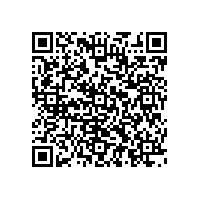ARISS School Contact Procedure
Update: 05/01/2025
ARISS is an international volunteering working group devoted to develop and put into operation the onboard amateur radio station. The main goal is to provide educational outreach to the youth of the world, in collaboration with the space agencies. Specialised satellite amateur radio operators across the world offer their expertise, their equipment and their time to establish the radio link with the space station.
ARISS counts five Regions: USA, Russia, Canada (including Central and South America), Europe (including Africa and the Middle East), Japan (including Far East and Oceania).
There is a waiting list in each Region. The waiting time is approximately 6 - 12 months, depending on the number of schools on the waiting lists and the availability of the astronauts.
The ARISS Schools Selection Committee selects schools fulfilling the requirements relative to technical feasibility and a valid educational project. Selected schools are put on a waiting list.
Interested schools submit an Application includes Authorisation and use of personal information, in accoriging to the GDPR and to national laws on the detention and the processing of personal information, a STEAM oriented educational project (Science, Technology, Engineering, Arts and Mathematics), and the school calendar (spreadsheet) with the days of availability, unavailability and desiderate days for scheduled contact, (see sidebar).
In European Region (Europe, Africa and Middle-East), Schools and Youth organizations, interested in setting up an ARISS radiocontact with an astronaut onboard the International Space Station, are invited to submit their requests from September to October and from February to March, filling out the ARISS Europe Application Form Online (see sidebar).
An ARISS Mentor, and optionally by an ARISS Education Ambassador, will be assigned to each school to assist and help them during the entire process up to radio contact. The "ARISS Mentor", in November and in April, checks the applications, the technical feasibility and how the school can fulfill the requested STEAM oriented educational activities, adapted to age and level of the participating students. Collaboration with a teacher favors the selection process. The waiting list for the ARISS-Europe Region is updated in June and in January.
For each ISS Expedition (ISS Increment/crew), schools are extracted from the waiting lists and put on an active "to do" list. This is done on a "one school per week" basis, but it has happened, that two or even three schools were handled in the same week, depending on available astronaut time.
The ARISS Operations Committee meets weekly per teleconference and nominates a mentor for each school on the active list. ARISS mentors are volunteering satellite amateur radio operators, who guide the school and the local amateur radio operators on the way to a succesful school contact. ARISS mentors communicate with the schools by e-mail and telephone. They check the technical and organizational preparedness of the school. The mentor checks also the Public Relations aspect (VIP and media) and reports to the ARISS Operations Committee.
The scheduling process is progressive and takes at least two months.
20 questions are prepared by the students and forwarded to the ARISS mentor at least two weeks before the contact. A short presentation of the school is also provided. The questions are submitted to the NASA Bio-Medical service, medical doctors and psychologists responsible for the health of the astronauts. The questions and the presentation are included in the uplink document to the astronaut, with technical precisions regarding the radio contact.
Amateur radio is an experimental service. Success cannot be guaranteed, but careful preparation lends excellent results. The school shall organise rehearsals to optimise the exchange of messages during the 10 minutes (visibility) pass of the ISS.
It happens that a school contact is cancelled, even on short notice; a new date is then scheduled under the best possible conditions.
ARISS School Contacts are performed in two different ways, depending on practical considerations: direct contacts; "telebridge" contacts.
Direct contact: a satellite amateur radio station is set up in the school and operated by a local group of specialised licensed operators. This method needs careful preparation and considerable effort of the volunteering team. When no performing tracking antennas can be set up (obscurations by surrounding buildings, mountains, etc.), a "telebridge" contact is preferred.
Telebridge contact: the ARISS organisation counts 12 specialised satellite ground stations, located all over the world: Belgium, Italy, South-Africa (New one!), USA (3), Australia (3), Argentina (2)
These stations belong to individual radioamateurs or to amateur radio clubs. Their operators volunteer to perform so-called "telebridge" ARISS School Contacts. With this setup, the radio contact with the ISS is performed by the "telebridge" station and the audio signals are relayed per phoneline or web conference to the school, anywhere in the world.
This system offers greater scheduling facilities than direct contacts. Indeed, the worldwide geographical distribution of the ground stations easies coordination with astronauts' timeline and schools' availibility. Telebridge ground stations operators accept to do radio contacts any time of the day and the night. Evidently, their availibility is checked during the scheduling process.
In the school, only a good phoneline and a teleconference type phoneset or web conferencing system are needed; together with the usual audio amplifier and computer projector for the presentation.



